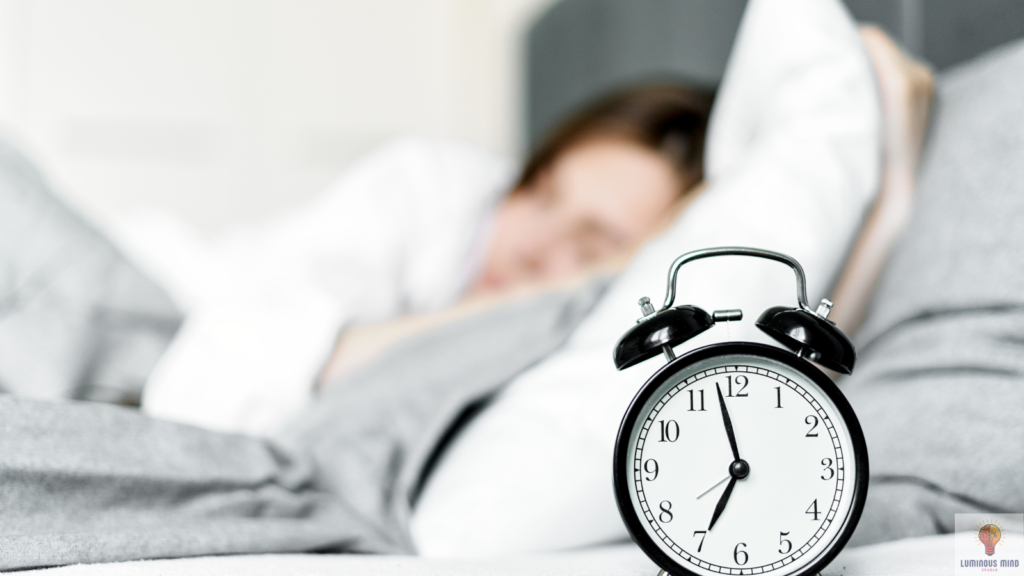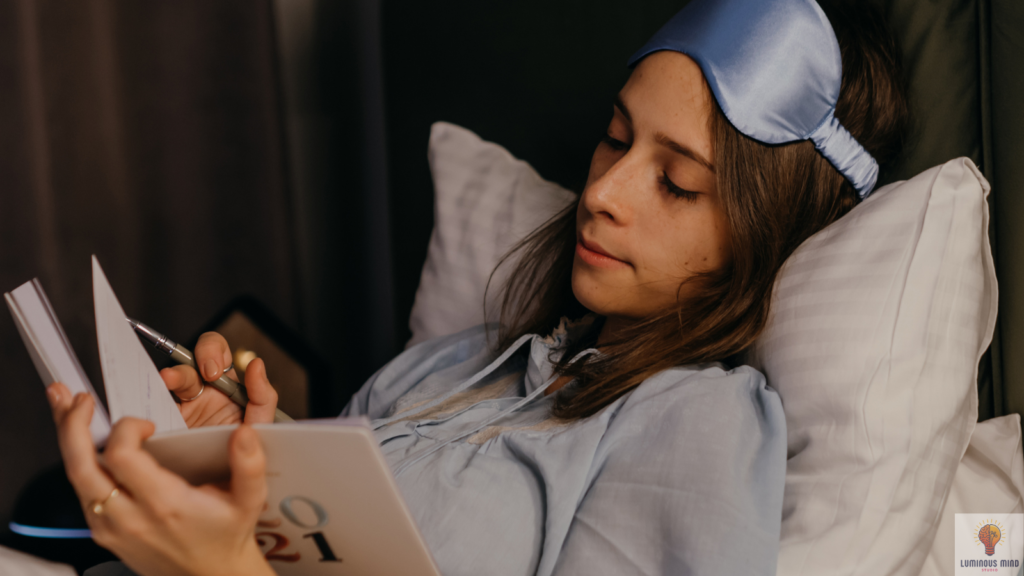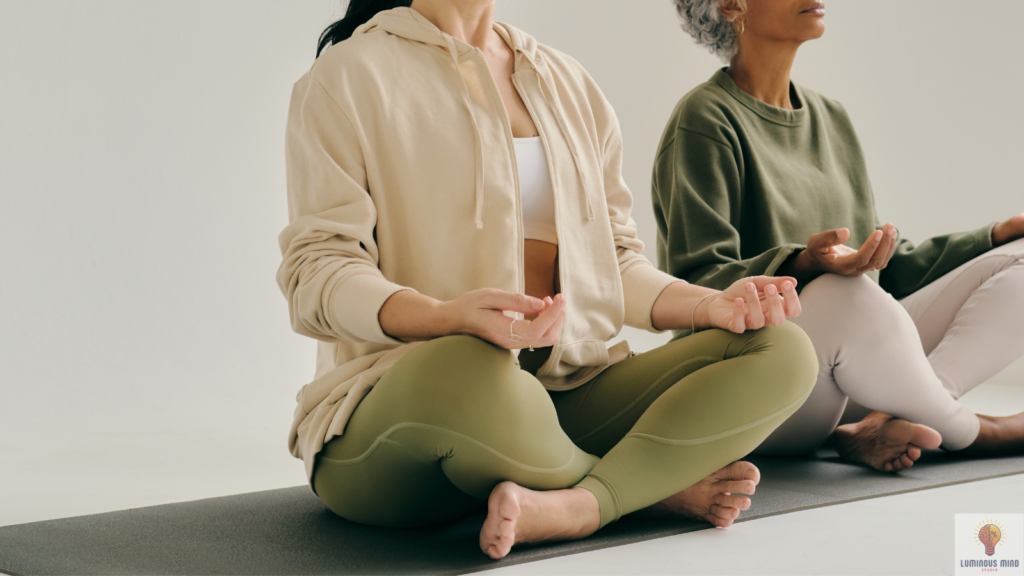Good sleep is required for maintaining overall physical and mental well-being. However, many people struggle with sleep and have insomnia, a sleep disorder. While sleep medications may offer temporary relief, but are not a long-term solution. Additionally, they can have unwanted side effects.
Fortunately, there are many effective ways to improve sleep without using any medicine. By making simple changes to your daily routine and lifestyle habits, you can improve the quality of your sleep. In this guide, we’ll explore the best tips and techniques on how to improve sleep without medicine.
Ways to Improve Sleep Without Medicine
1. Establish a Consistent Sleep Schedule
Establishing a consistent sleep schedule is a crucial aspect of maintaining good sleep hygiene. Going to bed and waking up at the same time every day helps regulate the body’s internal system and improves sleep. A consistent sleep schedule enables the body to get into a routine, making it easier to fall asleep and stay asleep throughout the night. Additionally, it helps to reduce sleep disruptions, such as insomnia and daytime fatigue, and can even improve mental health and cognitive function. By sticking to a consistent sleep schedule, individuals can wake up feeling refreshed, revitalized, and ready to take on the day.
- Key Action Step: Set a regular bedtime and wake-up time, and stick to it.

2. Create a Relaxing Bedtime Routine
Making a relaxing bedtime routine is essential for signaling to the brain that it’s time to sleep. A calming pre-sleep routine can help to quiet the mind, relax the body, and prepare for a restful night’s sleep. This can include activities such as reading a book, taking a warm bath, practicing gentle stretches, or listening to soothing music.
Additionally, dimming the lights, reducing noise levels, and keeping electronic devices out of the bedroom can also help to create a sleep-conducive environment. By establishing a consistent and calming bedtime routine, individuals can train their brains to associate these activities with sleep, making it easier to fall asleep and stay asleep throughout the night.

3. Optimize Your Sleep Environment
Managing your sleep environment is crucial for a restful and rejuvenating sleep. This involves creating a sleep-conducive space that promotes relaxation and comfort. Ensure your bedroom has a dark and quiet environment with a comfortable temperature. You can use thick curtains to make the room dark, earplugs, or a white noise machine to make it quiet. Invest in a comfortable mattress and pillows, and consider using a weighted blanket or a sleep-promoting essential oil diffuser.
Additionally, remove electronic devices such as TVs, computers, and smartphones from the bedroom, and use blue light filtering glasses or apps to minimize screen time before bed. By optimizing your sleep environment, you can improve the quality of your sleep, increase energy levels, and wake up feeling refreshed and revitalized.
4. Limit Screen Time Before Bed
Reducing screen time before bed is very important for a good and sound sleep at night. The blue light emitted from smartphones, tablets, computers, and televisions can suppress the production of melatonin, the hormone that regulates sleep. Exposure to screens and the constant notifications from social media, emails, and texts can also stimulate the brain, making it difficult to wind down and relax before bed.
To promote better sleep, it’s recommended to avoid screens for at least an hour before bedtime or use blue light filtering glasses, apps, or software. Instead, opt for relaxing activities like reading, meditation, or deep breathing exercises to calm the mind and prepare the body for a restful night’s sleep.

5. Think Before You Eat and Drink
Regulating eating and drinking before bed is crucial for a restful night’s sleep. Consuming heavy meals, caffeine, and sugary foods close to bedtime can disrupt sleep patterns and reduce the quality of sleep. Eating a large meal before bed can lead to indigestion, acid reflux, and discomfort, making it difficult to fall asleep. Similarly, caffeine and sugary foods can stimulate the brain, increase alertness, and interfere with the body’s natural sleep-wake cycle.
To promote better sleep, it’s recommended to finish eating at least 2-3 hours before bedtime and avoid large meals, caffeine, and alcohol close to bedtime, as they can disrupt your sleep.
- Caffeine: Caffeine can stay in your system for up to 8 hours, so try to limit your intake after lunchtime. Coffee, tea, soda, and chocolate are common sources.
- Alcohol: Although alcohol may make you feel sleepy initially, it interferes with deep sleep and can cause you to wake up during the night.
- Heavy meals: Eating a large meal late at night can cause discomfort and indigestion, making it harder to sleep. Opt for lighter snacks like yogurt or a banana if you’re hungry before bed.

6. Exercise Regularly
Regular exercise is a crucial aspect of maintaining a healthy lifestyle, and it also plays a significant role in promoting better sleep. Engaging in physical activity can help regulate sleep patterns, improve sleep quality, and increase the amount of deep sleep obtained. Exercise can also help reduce stress and anxiety, common reasons for sleep disturbances.
However, it’s essential to work out correctly, as exercising too close to bedtime can interfere with sleep. Aim to complete workouts a few hours before bedtime, allowing your body time to wind down and prepare for a restful night’s sleep.
- Key Tip: Aim for at least 30 minutes of moderate exercise most days of the week. However, try to avoid exercise within a few hours of bedtime, as it can have a stimulating effect and make it harder to fall asleep.
7. Try Relaxation Techniques
Relaxation methods are a powerful tool for improving sleep during the night. Methods such as deep breathing, muscle relaxation, and mindfulness meditation can help calm the mind and body, making it easier to fall asleep and stay asleep.
- Muscle Relaxation: This method involves tensing every muscle group in the body for a little time, and then releasing it. This helps relieve physical tension and can promote relaxation.
- Deep Breathing: Slow, deep breathing signals your body to relax and can help reduce stress and anxiety.
- Mindfulness Meditation: Practicing mindfulness before bed helps calm racing thoughts and promotes a state of relaxation.
These techniques can also help reduce stress and anxiety, common causes of insomnia and other sleep disorders. By incorporating relaxation techniques into your bedtime routine, you can signal to your brain that it’s time to sleep, and wake up feeling refreshed, renewed, and ready to take on the day. Regular practice can also lead to long-term improvements in sleep quality, duration, and consistency.

8. Sit in the Natural Sun Light
Exposing yourself to natural light is essential for regulating your body’s internal system and promoting better sleep. It helps to stimulate the production of serotonin, a neurotransmitter that regulates mood, appetite, and sleep-wake cycles. Morning light exposure, in particular, helps to signal to the brain that it’s time to be awake, while evening light exposure can interfere with sleep. Spending time outside during the day, keeping curtains open to let sunlight in, and taking short walks outside during the day can all help regulate your circadian rhythms and improve sleep quality. By making natural light a part of your daily routine, you can help your body establish a consistent sleep-wake cycle and wake up feeling refreshed and revitalized.
- Key Tip: Try to get at least 30 minutes of natural sunlight exposure each day, especially in the morning.

9. Manage Stress and Anxiety
Managing stress and anxiety is another important factor for having better and sound sleep at night. When we’re stressed or anxious, our bodies produce stress hormones like cortisol and adrenaline, which can make it difficult to fall asleep and stay asleep. Furthermore, stress and anxiety can lead to racing thoughts, rumination, and hypervigilance, making it challenging to relax and unwind before bed. To manage stress and anxiety for better sleep, it’s essential to engage in stress-reducing activities, such as meditation, yoga, or deep breathing exercises, during the day.
Additionally, practicing relaxation techniques, like progressive muscle relaxation or visualization, before bed can help calm the mind and body, making it easier to fall asleep and stay asleep. By effectively managing stress and anxiety, you can improve the quality of your sleep and wake up feeling refreshed, revitalized, and ready to take on the day.
- Strategies for Managing Stress:
- Time management and setting realistic goals
- Journaling or talking to someone about your worries
- Practice yoga or meditation
Managing your stress during the day can help prevent it from affecting your sleep at night.
10. Use Aromatherapy
Try aromatherapy for a natural and effective way to improve sleep quality. Certain scents, such as lavender and vanilla make it easier to fall asleep by inducing a calming effect on the body. Aromatherapy can help reduce stress and anxiety, promote relaxation, and regulate sleep patterns. To incorporate aromatherapy into your bedtime routine, use essential oils in a diffuser, apply them to your skin, or inhale them directly. Add a few drops of calming essential oils to your pillowcase or bedding for a restful night’s sleep. By harnessing the power of aromatherapy, you can create a sleep-conducive environment that promotes deep relaxation and rejuvenating sleep.

Final Thoughts
Improving sleep without medicine is an achievable goal that can be realized by making simple yet effective changes to your daily routine and sleep environment. By establishing a consistent sleep schedule and managing stress and anxiety, you can significantly improve the quality of your sleep. Additionally, incorporating natural sleep aids such as aromatherapy, exercise, and relaxation techniques can further enhance your sleep experience.
By taking a healthy approach to sleep and making healthy lifestyle choices, you can wake up feeling refreshed and ready to take on the day, without relying on medication. Remember, it may take some time to improve your sleep, but be patient and stay consistent. Implementing the above-discussed strategies over time can lead to long-term improvements in your sleep and overall well-being.
Additional Readings from Luminous Mind Studio



